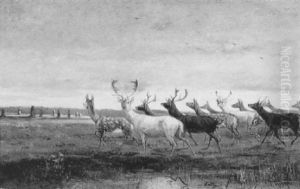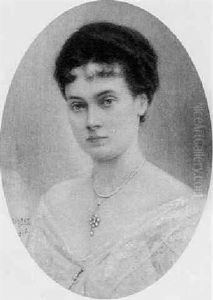Albert Richter Paintings
Albert Richter was a German track cyclist who rose to prominence in the 1930s. Born on October 14, 1912, in Cologne, Germany, he became known for his remarkable sprinting abilities on the velodrome circuit. Despite being a sports figure during the rise of the Nazi regime in Germany, Richter did not align himself with the political ideologies of the time, which ultimately had severe repercussions on his career and life.
Richter's cycling career began in his teenage years, and by the early 1930s, he had already established himself as a formidable competitor. He won numerous national titles and was considered one of the best sprint cyclists of his era. In 1932, he became the German sprint champion, a title he would win multiple times. Richter's talent was recognized internationally, and he competed in races across Europe, achieving significant success and fame.
However, Richter's career was overshadowed by the political climate of Nazi Germany. He faced pressure to join the National Socialist Party and to display symbols of allegiance, but he resisted such demands. This defiance was not only a matter of personal conviction but also rooted in his close friendship with his Jewish manager and friend, Ernst Berliner, whom he refused to abandon despite the increasing persecution of Jews at the time.
His resistance to Nazi policies and his associations with Jewish individuals made Richter a target of the regime. Despite the threats, he continued to compete and maintain his principles. Tragically, Albert Richter's life came to an abrupt end when he was arrested by the Gestapo at the German-Swiss border in late December 1939. Officially, his death was recorded as suicide on January 2, 1940, but there is strong suspicion that he was murdered by the Gestapo. His premature death at the age of 27 cut short the life of a talented athlete who showed courage in the face of a tyrannical regime.
Richter is remembered not only for his achievements in the world of cycling but also for his moral integrity during one of history's darkest periods. His legacy is honored by various memorial initiatives, including the Albert Richter Velodrome in Cologne, which serves as a testament to his athletic prowess and his character.





